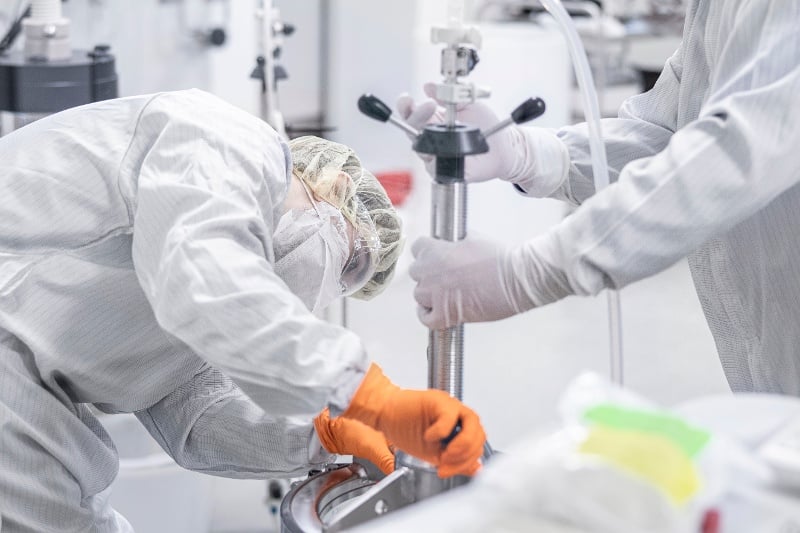- Case Study -
Multi-Column Chromatography:
Streamlining Antibody Capture with Multi-Column Chromatography

The Challenge
The biopharmaceutical industry is constantly seeking ways to improve the efficiency and cost-effectiveness of manufacturing processes, particularly for complex biologics like monoclonal antibodies (mAbs). Traditional batch chromatography, while widely used, presents limitations such as high resin costs, underutilization of resin capacity, and a less-than-ideal footprint. These challenges can significantly impact the development and production of new therapies, especially for small to medium-sized biotech companies.
The AGC Biologics Solution
AGC Biologics recognized the need to address these challenges and reevaluate the antibody capture step within their CDMO facility. One of the solutions they turned to was multi-column chromatography (MCC), an innovative technique that utilizes multiple smaller resin-packed columns operating simultaneously. By implementing MCC for suitable projects, AGC Biologics aimed to achieve several key objectives:
- Increased Productivity: Reducing the resources and time required to deliver high-quality biologics.
- Cost Optimization: Achieving cost savings for clients and patients without compromising product quality.
- Process Flexibility: Adapting to various antibody formats and production scales, ensuring versatility.
- Quality Assurance: Maintaining the highest quality standards while achieving speed and efficiency gains.
The core principle of MCC lies in maximizing the dynamic binding capacity (DBC) of the resin by continuously loading multiple columns in series. This approach minimizes product loss due to breakthrough and significantly reduces the volume of resin needed. The result is a substantial decrease in operational costs (up to 80%) and a remarkable increase in specific productivities.

AGC Biologics conducted a thorough evaluation of various MCC systems available in the market. After careful consideration, they selected Cytiva's ÄKTA PCC system as the ideal candidate. This system offers exceptional versatility, flexibility in column configurations, suitability for alternative applications, and impressive high-flow properties.
The Results
Proactive adoption of MCC, where appropriate, demonstrates a commitment to innovation and process optimization. By overcoming the limitations of traditional batch chromatography for specific projects, AGC empowers their clients to achieve greater efficiency, cost savings, and faster timelines in developing and producing lifesaving biotherapeutics. The implementation of MCC has the potential to reduce resin usage by up to 65% and increase productivity by 200-300%, translating to significant cost savings for clients. The adaptability of MCC to various antibody formats and production scales further enhances process flexibility and responsiveness to client needs.
At AGC Biologics, we understand that every project is unique. The choice of purification method, whether MCC or other advanced technologies such as the GORE® Protein Capture Device, is evaluated on a project-by-project basis, considering factors such as the specific molecule, production scale, and desired outcomes. AGC Biologics is committed to leveraging their expertise and diverse toolkit to tailor the approach for each client, ensuring the highest levels of quality, efficiency, and success.





